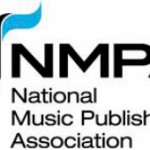Sep 24, 2009
The World Intellectual Property Organization (WIPO) today announced a partnership with the International Federation of Musicians (FIM) and the International Federation of Actors (FIA) to improve recognition and treatment of musicians and actors internationally. Specifically, the agreement seeks to address the recognition of these workers' rights in developing countries, and especially with regard to their intellectual property rights. From a WIPO press release today:
The agreement highlights the connection between IP and labor and the special concerns of cultural workers from the viewpoint ... Read More
Aug 26, 2009
The music industry's next bone to pick with content users and downloaders seems to be online lyrics, published on sites that aggregate this content for users. The National Music Publishers Association has filed a copyright infringement suit against two companies that publish lyrics online for profit. One of the companies is owned by MySpace co-founder Brad Greenspan.
To be honest, I didn't really see this one coming. There are plenty of sites that publish lyrics for free, and so maybe I underestimated the ... Read More
Jul 9, 2009
At a time when Michael Jackson was at the height of his entertainment career, and therefore his bargaining power with his record label, entertainment attorney John Branca negotiated a deal for Jackson that only acts like Ray Charles and Madonna have been able to duplicate: Jackson receives half of all profits from U.S. music sales (most artists get none) and a whopping 25% royalty rate on all sales (many artists get none, the best get 3% to 10%). These, however, are not ... Read More
Apr 20, 2009
I'm a little late on this one, but in case you missed it:
This documentary film was forwarded to me by my father, a professor/academician/scholar/ and self-pronounced egghead who specializes in the relationships between philosophy, theology, ethics, popular culture and preaching. The film, a product of Open Source Cinema, is called "RiP: A remix Manifesto", and touts itself as
. . . an open source documentary about copyright and remix culture. Created over a period of six years, the film features the collaborative remix work ... Read More
Apr 1, 2009
Michael Martin raises an interesting question on his Broken Symmetry blog, and one that I just couldn't pass up: Are Tweets Copyrightable?.
Just last week, a Wall Street Journal article announced a business plan to monetize the popularity of Twitter, which means people now have an incentive to own their tweets, or at least control them exclusively. The question of copyrightability in this context comes down to whether a tweet is copyrightable subject matter. To this end, Martin writes the following:
That depends. The ... Read More
Mar 30, 2009
This has been in the works for a long time. Today, Google and over 100 record labels broke a lot of barriers, both cultural and legal, to start an online music downloading service available only in China. Negotiations to open the service have been carrying on for years. Apparently, over 100 record labels, including the largest (Warner, Sony, EMI, Vivendi) have licensed their music for free download in China. Ad sales in China will serve as Google's revenue stream.
This accomplishment breaks legal barriers, ... Read More
Mar 7, 2009
A Los Angeles jury on Friday found that rapper Eminem's former publisher was not entitled to a higher royalty rate for digital downloads than what it received for traditional sales. The publisher was suing Eminem's record label, Aftermath Records. The case was similar to a string of cases where music publishers have tried to prove that a digital download is akin to a license rather than a traditional sale. Royalty rates for traditional sales are set at a standard rate (mechanical rate) ... Read More
Feb 18, 2009
This past weekend marked the two-year time limit under the Webcasters Settlement Act given to Internet Radio Services such as Pandora to reach a deal with the recording industry on streaming fees. The deadline came and went without an agreement. Traditional broadcasting radio stations, which also stream music on their web sites, did reach a deal with record labels (the terms of which I have yet to uncover). The beef between the internet radio stations and the record labels is mainly over ... Read More
Jan 31, 2009
Every once in a while I will read about a business venture that is so business-savvy, yet so simple, I pinch myself for not thinking of it, while applauding the ones who did at the same time. A recent post on IP Finance introduced a new business model that is currently being tested in the music industry. In short, bands and artists are asking their loyal fans (and those that just hear them and think they are good enough to make it) ... Read More
Jan 17, 2009
Copyright and music publishers in Nashville have for years adopted and exercised a business model that was created decades ago. That model includes hiring songwriters, or buying the composition right to songs (as opposed to the sound recording right), and marketing those rights to record labels and artists for inclusion in an upcoming album (and the payment of performance and mechanical rights). Transactions in this business have been controlled and channeled by those companies that have been doing it for a long ... Read More









 Ian McClure is a former corporate & securities and intellectual property law attorney with
Ian McClure is a former corporate & securities and intellectual property law attorney with  Trevor M. Blum is a former Associate in the Chicago-based, valuation practice group of Ocean Tomo, LLC., an intellectual property (IP) consultancy. Additionally, he provided instrumental research support to Intellectual Property Exchange International, Inc., an IP exchange start-up. Trevor holds a B.S. from Indiana University and is currently an MBA candidate at the University of Cambridge, focusing on international business and finance. His interests also include entrepreneurship, economics, and informational visualization. He enjoys running and cycling in his free time. Trevor seeks to bring a transnational business perspective to the blog.
Trevor M. Blum is a former Associate in the Chicago-based, valuation practice group of Ocean Tomo, LLC., an intellectual property (IP) consultancy. Additionally, he provided instrumental research support to Intellectual Property Exchange International, Inc., an IP exchange start-up. Trevor holds a B.S. from Indiana University and is currently an MBA candidate at the University of Cambridge, focusing on international business and finance. His interests also include entrepreneurship, economics, and informational visualization. He enjoys running and cycling in his free time. Trevor seeks to bring a transnational business perspective to the blog. 